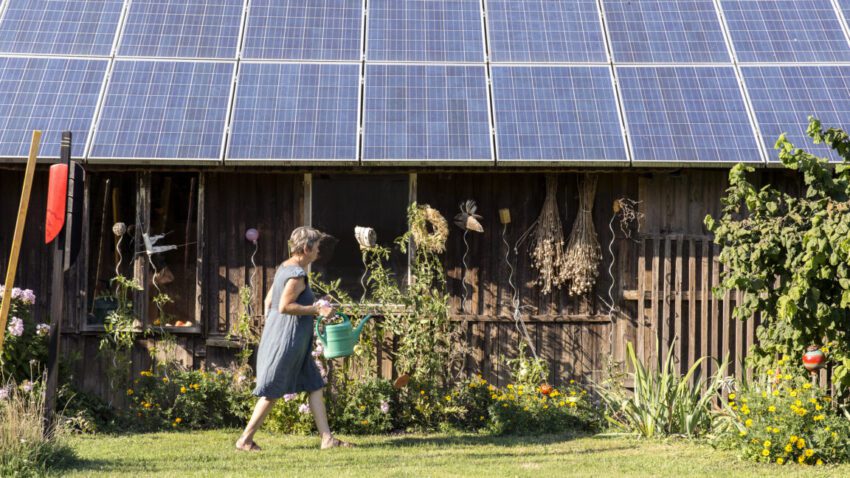
trump s epa sued for axing 7 The Environmental Protection Agency (EPA) is facing a lawsuit over its decision to terminate a significant solar energy initiative aimed at assisting low-income and disadvantaged communities across the United States.
trump s epa sued for axing 7
Background of the “Solar for All” Program
Launched as part of a broader effort to promote renewable energy and combat climate change, the “Solar for All” program was designed to provide financial relief to households struggling with high electricity costs. The initiative was particularly focused on low-income and disadvantaged communities, which often bear a disproportionate burden of energy expenses. By facilitating access to rooftop and community solar projects, the program aimed to empower these communities to harness solar energy, thereby reducing their reliance on traditional energy sources.
The program was projected to save an estimated $350 million annually on energy bills during its five-year duration. This financial relief was expected to benefit over 900,000 households, providing them with much-needed assistance in managing their electricity expenses. Furthermore, the initiative was anticipated to secure 4,000 megawatts of new solar energy and create approximately 200,000 new jobs in the renewable energy sector.
The Lawsuit Against the EPA
On Wednesday, a coalition of plaintiffs filed a lawsuit against the EPA, alleging that the agency’s decision to terminate the “Solar for All” program was politically motivated and unlawful. The plaintiffs include a labor union, several businesses, and a homeowner who relies on the program to afford her electricity bills. They argue that the EPA’s actions violate federal law and the Constitution, undermining the intent of Congress to support vulnerable communities through renewable energy initiatives.
Claims of Political Motivation
The plaintiffs contend that the termination of the program was not based on sound policy considerations but rather on political motivations. They assert that the decision reflects a broader trend of undermining renewable energy initiatives, particularly those aimed at assisting marginalized communities. This claim raises questions about the role of political influence in shaping environmental policy and the potential consequences for communities that depend on such programs for financial relief.
Legal Grounds for the Lawsuit
The lawsuit alleges that the EPA’s actions violate several legal principles, including the Administrative Procedure Act, which governs the process by which federal agencies create and implement regulations. The plaintiffs argue that the EPA failed to provide adequate justification for terminating the program and did not follow the proper procedures for such a significant policy change. This raises concerns about transparency and accountability within the agency, particularly in relation to programs designed to benefit low-income communities.
Implications of the Program’s Termination
The termination of the “Solar for All” program carries significant implications for low-income and disadvantaged communities across the United States. With rising energy costs and increasing economic pressures, many households are struggling to afford basic utilities. The loss of this program means that these communities may face even greater challenges in accessing affordable energy solutions.
Impact on Energy Costs
Without the financial relief provided by the “Solar for All” program, many low-income households may find it increasingly difficult to manage their electricity bills. The program was designed to alleviate some of the financial burdens associated with energy costs, and its termination could exacerbate existing inequalities in energy access. As energy prices continue to fluctuate, vulnerable communities may be forced to make difficult choices between paying for electricity and other essential expenses, such as food and healthcare.
Job Creation and Economic Opportunities
In addition to providing financial relief, the “Solar for All” program was expected to generate significant economic opportunities through job creation in the renewable energy sector. The anticipated creation of 200,000 new jobs would have provided valuable employment opportunities for individuals in disadvantaged communities, contributing to local economic growth. The termination of the program raises concerns about the potential loss of these job opportunities, particularly in a time when many communities are still recovering from the economic impacts of the COVID-19 pandemic.
Reactions from Stakeholders
The lawsuit has garnered attention from various stakeholders, including environmental advocacy groups, labor unions, and community organizations. Many have expressed their support for the plaintiffs, emphasizing the importance of maintaining programs that promote renewable energy access for low-income communities.
Environmental Advocacy Groups
Environmental organizations have condemned the EPA’s decision to terminate the “Solar for All” program, arguing that it undermines efforts to combat climate change and promote sustainable energy solutions. They contend that access to renewable energy is a fundamental right and that programs like “Solar for All” are essential for ensuring that all communities can benefit from the transition to clean energy.
Labor Unions and Workers’ Rights
Labor unions have also voiced their concerns regarding the termination of the program, highlighting the potential impact on job creation and workers’ rights. Unions argue that the renewable energy sector has the potential to provide stable, well-paying jobs, and that initiatives like “Solar for All” are critical for ensuring that these opportunities are accessible to all workers, particularly those in marginalized communities.
Future of Renewable Energy Initiatives
The lawsuit against the EPA raises broader questions about the future of renewable energy initiatives in the United States. As the country grapples with the urgent need to address climate change, the role of federal agencies in promoting sustainable energy solutions will be under scrutiny. The outcome of this lawsuit could set a precedent for how similar programs are implemented and maintained in the future.
Potential Policy Changes
If the plaintiffs are successful in their lawsuit, it could lead to a reinstatement of the “Solar for All” program or the establishment of similar initiatives aimed at supporting low-income communities. This outcome could signal a shift in federal policy toward a more inclusive approach to renewable energy access, prioritizing the needs of vulnerable populations.
Broader Implications for Climate Policy
The termination of the “Solar for All” program and the subsequent lawsuit highlight the ongoing tensions between political interests and environmental policy. As the Biden administration continues to advocate for ambitious climate goals, the actions of agencies like the EPA will be closely monitored. The outcome of this legal battle may influence future climate policies and initiatives, shaping the trajectory of renewable energy development in the United States.
Conclusion
The lawsuit against the EPA over the termination of the “Solar for All” program underscores the critical importance of ensuring access to renewable energy for low-income and disadvantaged communities. As the nation navigates the complexities of climate change and energy policy, the implications of this legal battle will resonate far beyond the courtroom. The outcome could determine not only the future of the program but also the broader landscape of renewable energy initiatives aimed at promoting equity and sustainability in the United States.
Source: Original report
Was this helpful?
Last Modified: October 6, 2025 at 11:36 pm
0 views















